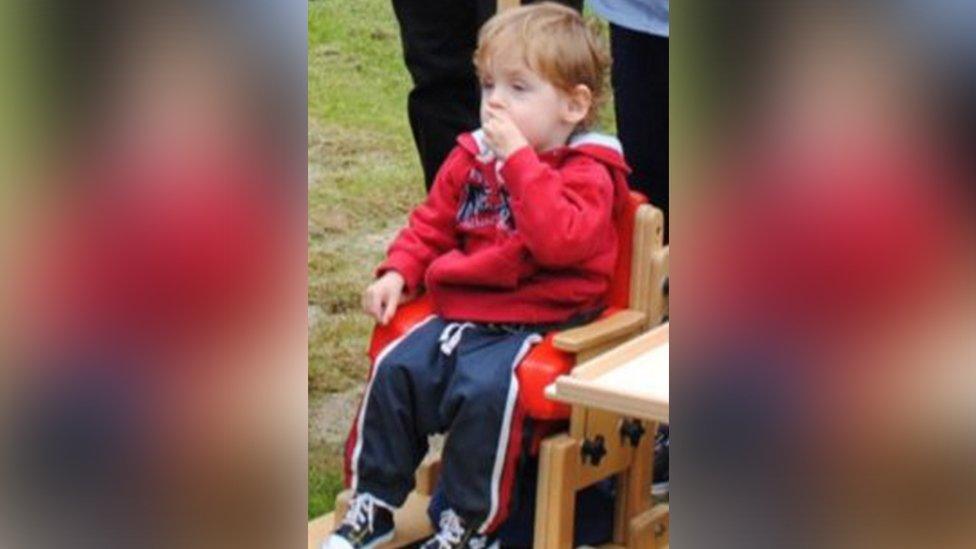Four-year-old Montrose boy may not have died if medical notes shared
- Published

Leylan Forte died in an ambulance outside his Montrose home in April 2015
The death of a four-year-old boy from dehydration caused by norovirus could have been avoided if his medical summary had been available to NHS 24, an inquiry has heard.
Leylan Forte died in an ambulance outside his Montrose home in 2015.
In an early morning phone call, an NHS 24 nurse told Leylan's father to take him to a GP practice when it opened.
The nurse said if he had been aware of his medical background he would have sought an ambulance within the hour.
A fatal accident inquiry into Leylan's death said GP practices should provide vulnerable patients' medical summaries to NHS 24 more often.
Brain injury
The inquiry was told Leylan was born prematurely and had a brain injury.
He was treated neonatally for withdrawal as a result of his mother's drug use during pregnancy, and had partial sight and cerebral palsy.
It said he required input from multiple professionals, but was frequently not taken to important medical appointments.
The inquiry was told that NHS 24 relies on GP practices to proactively provide a Key Information Summary (KIS) for vulnerable patients, but that there was no such note for Leylan.
But the inquiry accepted that prior to Leylan's death, such medical summaries were normally provided for terminal patients and their use had only recently widened.
House visit
It was told that later on the morning of 27 April 2015, his parents requested a home visit from the GP practice.
One of the doctors phoned the parents and was told that Leylan was keeping down some water and urinating.
Based on this information, she arranged to make a house visit following her morning surgery.
However, when she subsequently received an urgent call from Leylan's father, she departed for the family home.
When she arrived, she immediately told the parents to phone for an ambulance, which arrived 16 minutes later, and ordered oxygen from the practice.
However, the emergency services could not save Leylan and he died at at 12:28.
Parental vulnerabilities
His cause of death was acute dehydration and electrolyte disturbance secondary to norovirus, with the possible contributory factor of cerebral palsy.
In her written determination, external, Sheriff Gillian Martin-Brown said: "All witnesses were agreed that it would have been very helpful to have included information about the deceased's low BMI and parental vulnerabilities in the KIS."
Sheriff Martin-Brown noted the NHS 24 nurse's evidence, and an expert witness's opinion that if Leylan had been transferred immediately to hospital he would likely have made a full recovery.
The sheriff said: "A KIS was therefore a reasonable precaution which might have avoided the deceased's death."
However, the sheriff said that while it was possible to create a KIS for any patient, three GPs gave evidence that this was not standard practice back in 2015.
In her findings, she said: "There were no precautions which could reasonably have been taken whereby his death might realistically have been avoided."